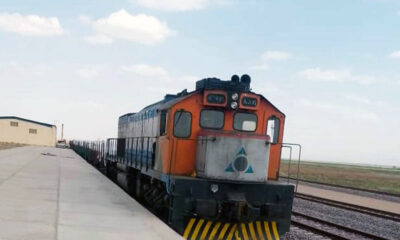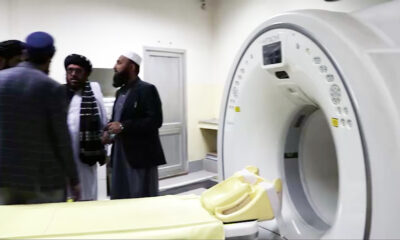Latest News
UN Afghan staff told to stay home as IEA signals UN female ban
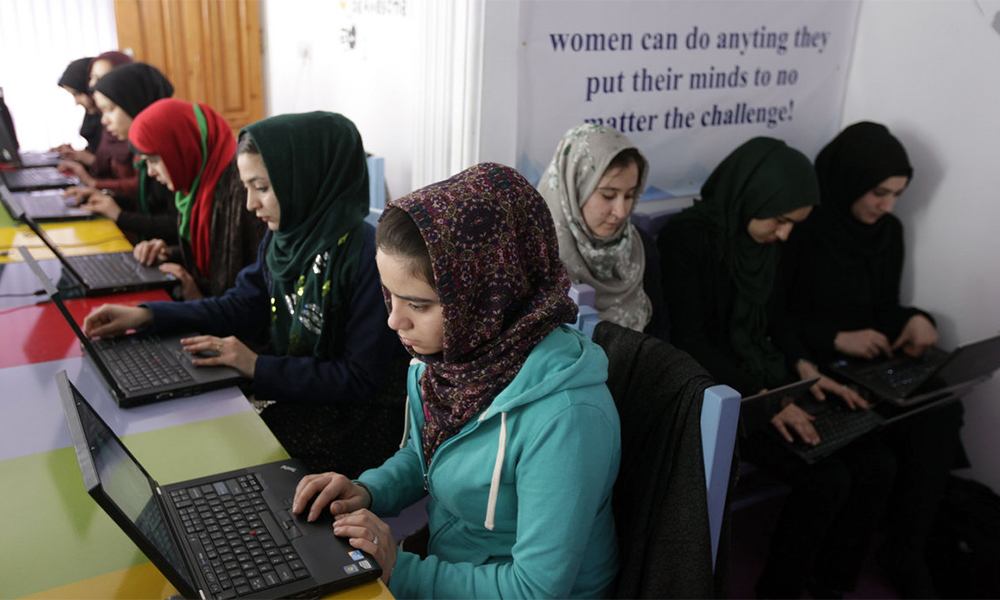
The United Nations told some 3,300 Afghan staff not to come to work in Afghanistan for the next two days after the Islamic Emirate authorities signaled on Tuesday that they would enforce a ban on Afghan women working for the world body, Reuters reported.
UN officials in Afghanistan “received word of an order by the Islamic Emirate authorities that bans female national staff members of the United Nations from working,” UN spokesperson Stephane Dujarric told reporters in New York.
The UN is looking into impacts and will meet with Afghan foreign ministry officials in Kabul on Wednesday to seek further clarity, he said. About 400 Afghan women work for the UN, read the report.
Two UN sources told Reuters that concerns over enforcement had prompted the organization to ask all staff – male and female – not to come to work for 48 hours. Friday and Saturday are normally weekend days in Afghanistan, meaning UN staff would not return until Sunday at the earliest.
The UN mission in Afghanistan (UNAMA) earlier on Tuesday expressed concern that female staff in the eastern province of Nangarhar had been stopped from reporting to work.
“There was a much more official communication made in (Nangarhar provincial capital) Jalalabad. We were told through various conduits that this applied to the whole country,” Dujarric, adding there was nothing writing.
“Female staff members are essential for the United Nations to deliver life-saving assistance,” he said, adding that some 23 million people – more than half Afghanistan’s population – need humanitarian aid.
The Islamic Emirate of Afghanistan (IEA) administration and the Afghan information ministry did not immediately respond to requests for comment, Reuters reported.
UN Secretary-General Antonio Guterres condemned the ban enforcement in Nangarhar, posting on Twitter: “If this measure is not reversed, it will inevitably undermine our ability to deliver life-saving aid to the people who need it.”
The IEA administration, which seized power as US-led forces withdrew from Afghanistan after 20 years of war, says it respects women’s rights in accordance with its strict interpretation of Islamic law.
Since toppling the Western-backed government in Kabul, the IEA have tightened controls over women’s access to public life, including barring women from university and closing most girls’ high schools, Reuters reported.
In December, IEA authorities stopped most female humanitarian aid employees from working, which aid workers say has made it more difficult to reach women in need and could lead donors to hold back funding.
The restrictions did not initially apply to the UN and some other international organizations. In January, UN Deputy Secretary-General Amina Mohammed flagged concerns that authorities could next restrict Afghan women working at international organizations.
It was not immediately clear whether foreign embassies in Kabul had received similar instructions on female staff.
A ban on Afghan female UN workers could pose major challenges to continued UN operations in Afghanistan. The founding UN Charter states that no restrictions be placed on the eligibility of men and women to work for the UN.
Aid officials have also flagged the risk that donor countries will reduce funding due to frustration over restrictions on women as other international crises take hold, Reuters reported.
The UN has made its single-largest country aid appeal ever, asking for $4.6 billion in 2023 to deliver assistance in Afghanistan. So far it is less than 5% funded.
Latest News
At least 1,500 families affected by recent floods: IRW
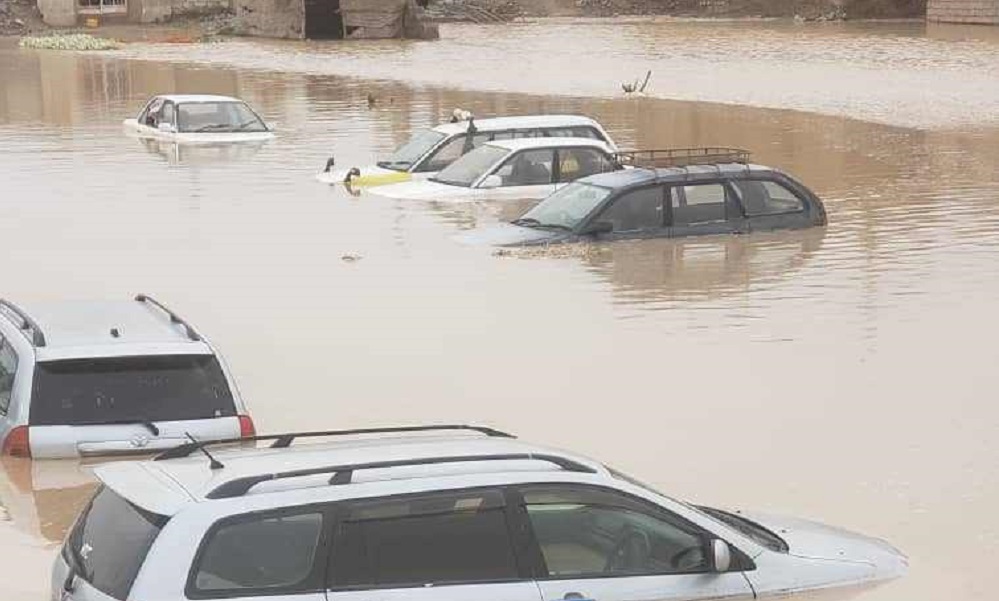
The Islamic Relief Worldwide (IRW) organization has reported that the rains and floods of the last week have claimed the lives of many Afghan and incurred huge financial losses.
According to the organization, a total of 1,500 families have suffered as a result of the recent floods and hundreds of livestock have also been lost.
IRW added that following the recent rains, 900 houses were partially or completely destroyed and 93,000 hectares of agricultural land was damaged.
This comes amid an ongoing economic crisis in Afghanistan which has left millions of people reliant on aid.
The disaster management ministry meanwhile confirmed earlier that 99 people died and 64 others were injured as a result of the heavy rains.
Latest News
Russia says US facing humiliation in Ukraine like in Vietnam and Afghanistan

Russia said on Sunday U.S. lawmakers’ support for $60.84 billion more in aid for Ukraine showed that Washington was wading much deeper into a hybrid war against Moscow that would end in humiliation on a par with the Vietnam or Afghanistan conflicts.
Russian Foreign Ministry spokeswoman Maria Zakharova said it was clear that the United States wanted Ukraine “to fight to the last Ukrainian” including with attacks on Russian sovereign territory and civilians, Reuters reported.
“Washington’s deeper and deeper immersion in the hybrid war against Russia will turn into a loud and humiliating fiasco for United States such as Vietnam and Afghanistan,” Zakharova said.
Russia, she said, will give “an unconditional and resolute response” to the U.S. move to get more involved in the Ukraine war.
The United States lost more than 58,000 military personnel in the 1955-75 Vietnam War, which ended with Communist North Vietnam’s victory and takeover of the South, while hundreds of thousands of civilians were killed.
In the 2001-2021 war in Afghanistan, the U.S. reported 2,459 dead and over 20,000 wounded in the conflict which ended with the withdrawal of U.S.-led coalition forces and return to power of the Islamic Emirate of Afghanistan (IEA).
Latest News
Iran says water is an important factor in expansion of ties with Afghanistan

Iran’s special representative for Afghanistan, Hasan Kazemi Qomi, said on Sunday that water is an important factor in the expansion of bilateral relations, expressing hope that the flow of water to his country will continue.
Qomi said this in a meeting with Acting Minister of Foreign Affairs Amir Khan Muttaqi in Kabul, the ministry said in a statement.
The envoy expressed gratitude for removing obstacles to the flow of water from the Helmand River to Sistan and Baluchestan province of Iran.
Meanwhile, Muttaqi noted that there were good rains in the country this year, as a result of which, after several years of severe drought, Helmand River’s water flowed to Nimroz province of Afghanistan and into Sistan and Baluchestan province of Iran.
He assessed the relations between Afghanistan and Iran as “friendly and positive” and hoped relations will expand further in various fields.
During the meeting, Iran’s envoy also thanked the Islamic Emirate for its stance on Israel’s attacks on Gaza and for having condemned the attack on the Iranian consulate in Damascus.
-
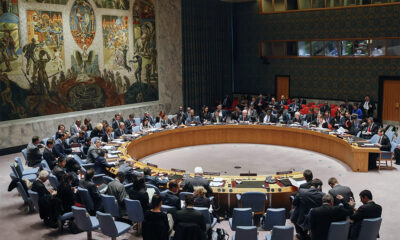
 World5 days ago
World5 days agoUN Security Council to vote Friday on Palestinian UN membership
-

 Business4 days ago
Business4 days agoCommerce ministry inks 10 MoUs to boost development of small and medium-sized businesses
-

 Sport4 days ago
Sport4 days agoRashid Khan threatens BBL pullout after Australia postpones Afghanistan T20I series
-

 Latest News5 days ago
Latest News5 days ago2023 marred by ‘tremendous challenges’ for Afghanistan
-

 Sport5 days ago
Sport5 days agoAfghanistan loses 3-1 to Iran in Futsal Asian Cup match
-

 Latest News4 days ago
Latest News4 days agoOver 6,000 acres of land cleared of poppies in Badakhshan
-

 Health5 days ago
Health5 days agoBalkh health officials report sharp increase in number of cancer patients
-

 Latest News4 days ago
Latest News4 days agoMSF ‘deeply concerned’ over new phase of deportations of Afghans from Pakistan








